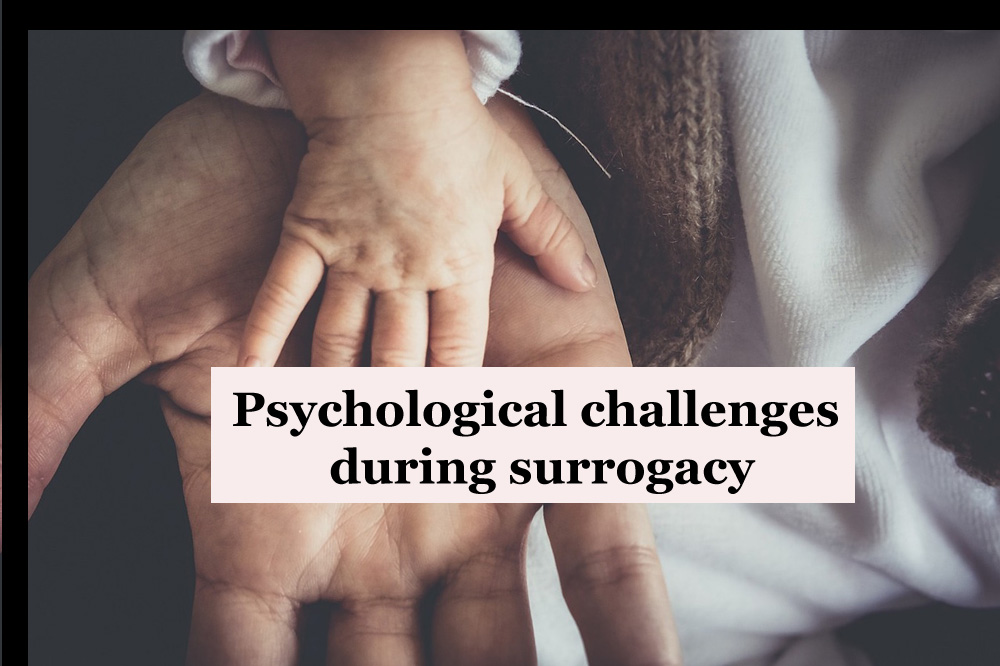How to finalize a new accommodation during a surrogacy process in a foreign country?
Making a fresh start to your surrogacy journey in a different country may come as an exciting prospect, but not without the associated stress. While you are looking to realize your parenthood dreams, you may have to manage a lot of things like managing the accommodation and logistics. Although a quick research and some help from the surrogacy agency can do the job, it may not be as easy as it sounds. Here we share some suggestions that can help you deal with the entire situation in the same respect.
Accommodation and Logistics Research
Never move ahead without proper research
Your first step should be to research the country and everything related to the surrogacy laws in that territory. This way, you can get a clear understanding of how surrogacy is practised in that part of the world.
Once you have clarity regarding all the legalities, you can then focus with a calm mind on accommodation and logistics. On the other hand, you must check a few prospects online like hotels and lodges that are rightly fitting within your budget.
Finalize a perfect location
A good location matters for your stay during the surrogacy process. Also, this is where you must choose a location that is near to the surrogacy centre or the fertility clinic. This way you can cut down on the travel time for all the important visits like medical appointments, ultrasound procedures and so on.
At the same time, check out the cost of their accommodations in the adjoining areas as you can choose the best option that fits into your budget. On the other hand, make sure the region is safe and secure and must offer basic amenities like medicines, food, groceries and all.
Choose the right type of accommodation
The next step must include choosing the right type of accommodation as per your comfort, convenience and budget. Moreover, you can choose from a lot of options like short-term rentals while visiting various websites online. While you will be getting a home-like environment within these accommodations, this is also good for a longer stay duration.
You can also look for hotels and lodges that will provide all the services at a certain price. This way, you need not look for all the important services around as everything is provided by the hotel only. That said, the type of accommodations you choose would largely depend on how long you are staying in the country and what comfort level you are looking for while choosing this accommodation.
Set your budget limits in advance

Connect via local transport if you feel like
Local transportation in Western countries is the main mode of transportation for many people. So, instead of going for private taxis or cars, you can look forward to the buses and trains to save a good amount. At the same time, it’s all a personal choice and a person can choose safety and convenience over savings. On the other hand, it will depend on a particular situation like whether you are going for an appointment, test or an emergency.
Stay connected all the while
As you are in a foreign territory, you must stay connected to your loved ones and friends in your nation on the move. Also, it is always suggested to connect with a local friend or even a surrogacy agency for immediate support. There will be a chance that you can gain access to free internet via public Wi-Fi systems. However, it is always recommended to purchase the local SIM only for your first trip to any country.
You can also ask the surrogacy agency to offer you a coordinator who can stay aside during every part of your journey. That way, you need not keep a check on each and everything while on the move. While this may cost some extra money, it would take care of comfort and convenience.
Creating a local support system can help
The importance of building a local support system can be of great help during your surrogacy journey. Also, this is where you can create connections with the local community or various surrogacy experts within the region. This way, you can also get benefitted out of their valuable advice and experience with mental counselling. On the other hand, you can use the power of social media to find such a community in a foreign country.
Pay attention to the language barriers

Pay respect to the local traditions
As you are in a foreign land, don’t forget to respect the local traditions and people. If you are not aware of their customs, learn about them online or via a local friend or a surrogacy professional. That way, you can always better your experience and get along with your surrogacy journey without offending anyone.
Stay prepared for any unforeseen situations
Staying prepared for any kind of uncertain situation can also help during a surrogacy process. So, while you are finalizing your accommodation, you must always keep an emergency plan in hand. This could be in regards to your visit to the hospital, medical professional or the surrogate mother. Still, make sure that you are coming along with all the required documents, contract papers and medical records to get along with the same.
Final words
Finalizing an accommodation in a new country may require some good thoughts and decision-making. So, while keeping all these aspects in mind, you can make an informed decision towards a beautiful surrogacy journey.





 The
The 


 Russia does have its pool of surrogate mothers. Still, in reality, most of the surrogates here have their origins in Ukraine. In any case, the strife has led to a decrease in the number of Ukrainian women willing to take an interest in surrogacy programs in Russia. Moreover, the insecurity and infirmity in Ukraine have made numerous Ukrainian ladies reluctant to travel to Russia for surrogacy programs.
Russia does have its pool of surrogate mothers. Still, in reality, most of the surrogates here have their origins in Ukraine. In any case, the strife has led to a decrease in the number of Ukrainian women willing to take an interest in surrogacy programs in Russia. Moreover, the insecurity and infirmity in Ukraine have made numerous Ukrainian ladies reluctant to travel to Russia for surrogacy programs. The cost related to surrogacy has been on the rise recently. As the request for surrogacy in Russia proceeds to rise amid the strife, the costs related to surrogacy programs have also expanded. Moreover, surrogacy agencies and clinics are confronting more noteworthy demands and are thus raising their costs to meet the expectations of the intended parents. Also, this increase in costs has made surrogacy less available to a few couples only who were already considering it as an alternative for starting a family.
The cost related to surrogacy has been on the rise recently. As the request for surrogacy in Russia proceeds to rise amid the strife, the costs related to surrogacy programs have also expanded. Moreover, surrogacy agencies and clinics are confronting more noteworthy demands and are thus raising their costs to meet the expectations of the intended parents. Also, this increase in costs has made surrogacy less available to a few couples only who were already considering it as an alternative for starting a family.



 Social media also plays a key role in forming recognitions and desires about surrogacy. That said, stories shared by surrogates or intended parents on platforms like Instagram or Facebook frequently highlight the positive elements of surrogacy, now and then portraying an idealized picture. Whereas these stories can be motivating, they can also make improbable desires about the surrogacy journey. Hence, it’s critical for people considering surrogacy to recognize that each journey is one of a kind and may not continuously balance with the accounts showcased on social media.
Social media also plays a key role in forming recognitions and desires about surrogacy. That said, stories shared by surrogates or intended parents on platforms like Instagram or Facebook frequently highlight the positive elements of surrogacy, now and then portraying an idealized picture. Whereas these stories can be motivating, they can also make improbable desires about the surrogacy journey. Hence, it’s critical for people considering surrogacy to recognize that each journey is one of a kind and may not continuously balance with the accounts showcased on social media.
 Through social media, stories and experiences from diverse social backgrounds are shared, contributing to a more comprehensive understanding of surrogacy. In the end, this global perspective can be edifying for those considering surrogacy, helping them understand this practice totally in a different social and legal setting.
Through social media, stories and experiences from diverse social backgrounds are shared, contributing to a more comprehensive understanding of surrogacy. In the end, this global perspective can be edifying for those considering surrogacy, helping them understand this practice totally in a different social and legal setting.

 Contracts play a key role in the implementation of
Contracts play a key role in the implementation of 
 Striking a balance between reasonable surrogate compensation and moral contemplations is highly significant. Moreover, compensation should recognize the surrogate’s commitment without commercializing the process.
Striking a balance between reasonable surrogate compensation and moral contemplations is highly significant. Moreover, compensation should recognize the surrogate’s commitment without commercializing the process.
 Inspirations behind becoming a Surrogate: Understanding why the surrogate has chosen surrogacy is very important. Moreover, it makes a difference in checking her commitment and seriousness for the surrogacy program. For example, in the case of Anne, a surrogate in California, her inspiration stemmed from witnessing a relative’s battle with infertility, which convinced the intended parents about her compassion and commitment.
Inspirations behind becoming a Surrogate: Understanding why the surrogate has chosen surrogacy is very important. Moreover, it makes a difference in checking her commitment and seriousness for the surrogacy program. For example, in the case of Anne, a surrogate in California, her inspiration stemmed from witnessing a relative’s battle with infertility, which convinced the intended parents about her compassion and commitment.
 On the other side, the agencies can make aware the parties of the background of the other party. That way, both the intended parents and the surrogate will have a starting point to talk about. With all the right details and data about each other, the conversation can really go smoothly and be fruitful for everyone.
On the other side, the agencies can make aware the parties of the background of the other party. That way, both the intended parents and the surrogate will have a starting point to talk about. With all the right details and data about each other, the conversation can really go smoothly and be fruitful for everyone. Need for Control: One of the biggest noteworthy psychological challenges during surrogacy is the feeling of need for control. Intended parents mostly aren’t aware of the minutes of the surrogacy procedure.
Need for Control: One of the biggest noteworthy psychological challenges during surrogacy is the feeling of need for control. Intended parents mostly aren’t aware of the minutes of the surrogacy procedure. Counselling: Looking for support from experts specializing in fertility and surrogacy can give intended guardians adapting techniques to oversee their stress and uneasiness. Moreover, it can help them deal with all such stressful moments and phases in their surrogacy journey.
Counselling: Looking for support from experts specializing in fertility and surrogacy can give intended guardians adapting techniques to oversee their stress and uneasiness. Moreover, it can help them deal with all such stressful moments and phases in their surrogacy journey.


 Keeping up a balance between a surrogate’s medical independence and satisfying the legally binding commitments of a surrogacy agreement is crucial. This may be accomplished through comprehensive legal contracts that unequivocally state the rights and duties of both parties. Moreover, this would include clauses that protect the surrogate’s right to form autonomous medical choices.
Keeping up a balance between a surrogate’s medical independence and satisfying the legally binding commitments of a surrogacy agreement is crucial. This may be accomplished through comprehensive legal contracts that unequivocally state the rights and duties of both parties. Moreover, this would include clauses that protect the surrogate’s right to form autonomous medical choices.


